For the purpose of providing access for blind people to graphical information on the computer screen, a device called "tactile mouse" has been developed. It consists of an ordinary computer mouse with a small tactile display unit on its top. The combinatory effect of the active movement of the hand and the tactile feedback to the fingers makes users feel as if they were exploring tangible drawings.
By adequately adjusting the ratio of hand movement to pins, subjects in the experiment were able to distinguish geometric figures; triangles, squares, pentagons, hexagons, and circles.
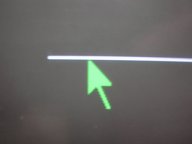
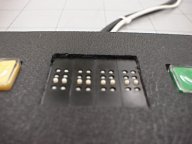
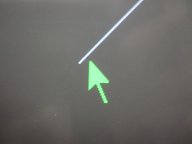
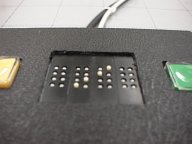
These four pictures show the correspondance between a line on the CRT display and a row of raised dots.
Upper Left: A horizontal line and the cursor on the CRT.
Upper Right: A horizontal row of raised dots on the Tactile Mouse.
Lower Left: An oblique line and the cursor on the CRT.
Lower Right: An oblique row of raised dots on the Tactile Mouse.
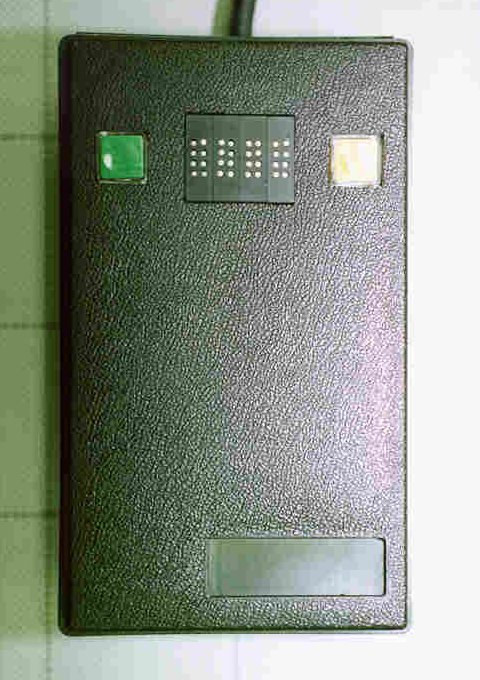
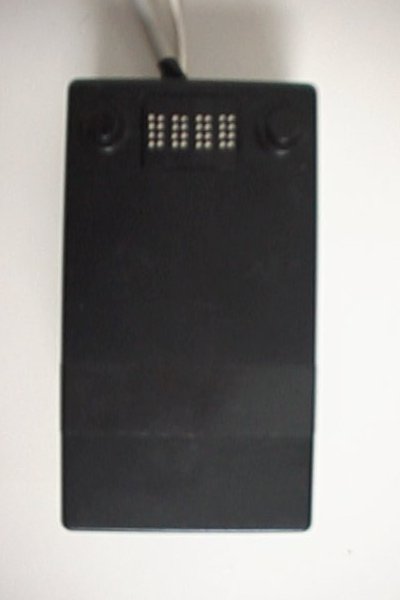
Tactile Mouse Version 1 (left) and Version 2 (right).
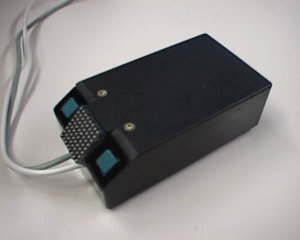
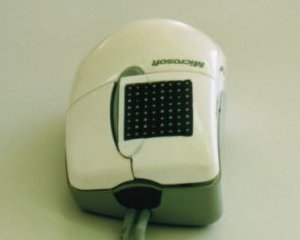
Tactile Mouse Version 3 (left) and Version 4 (right).
Last updated: January 23, 2006
Copyright (C) 2003-2006 Tetsuya WATANABE